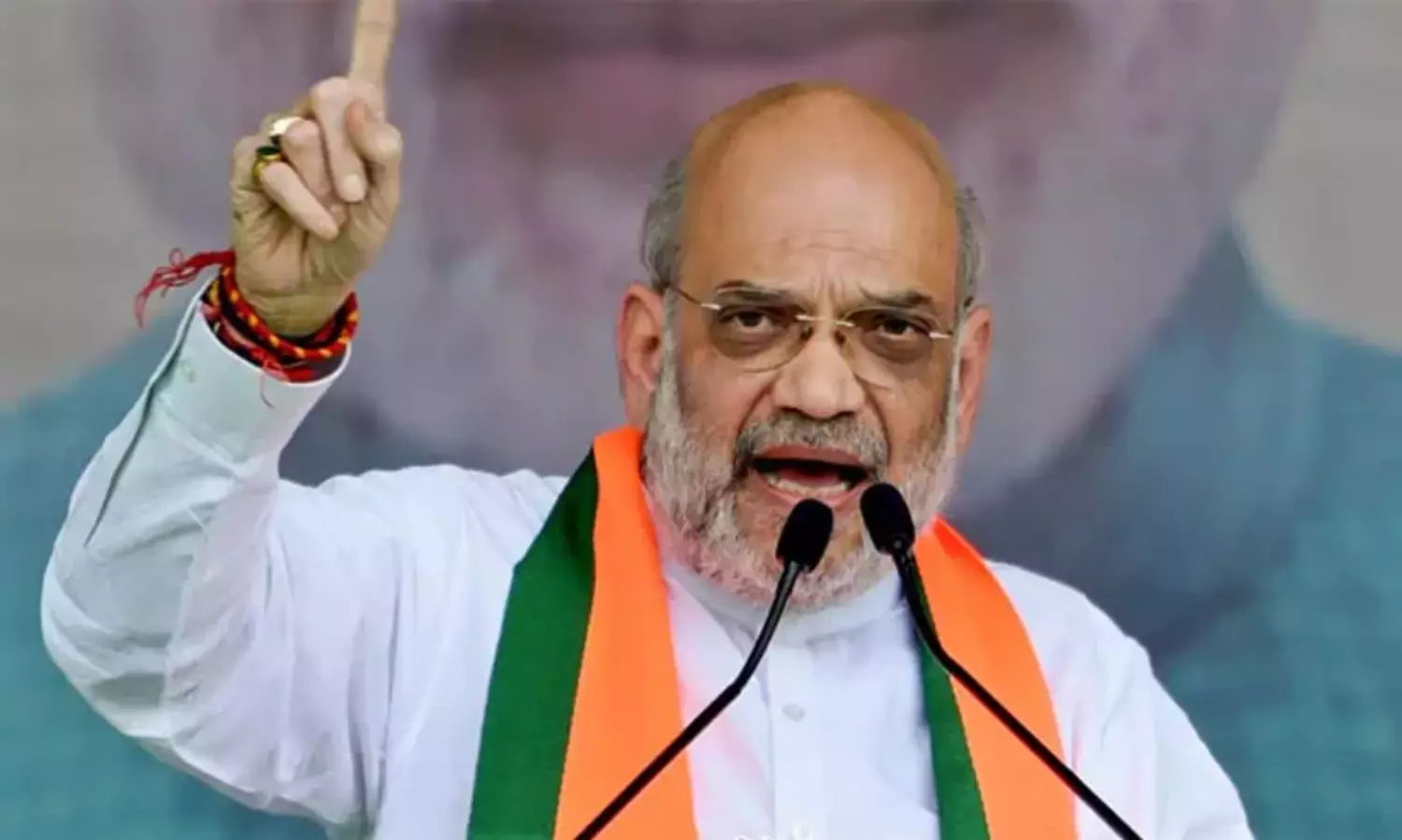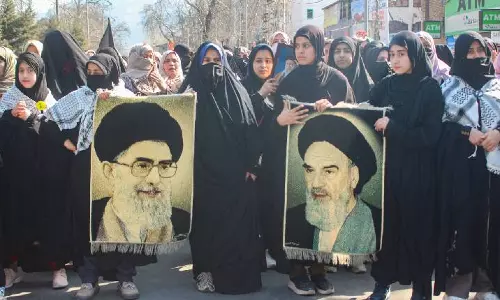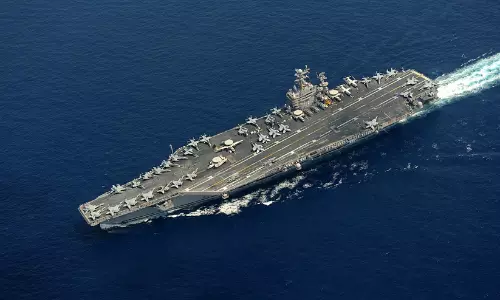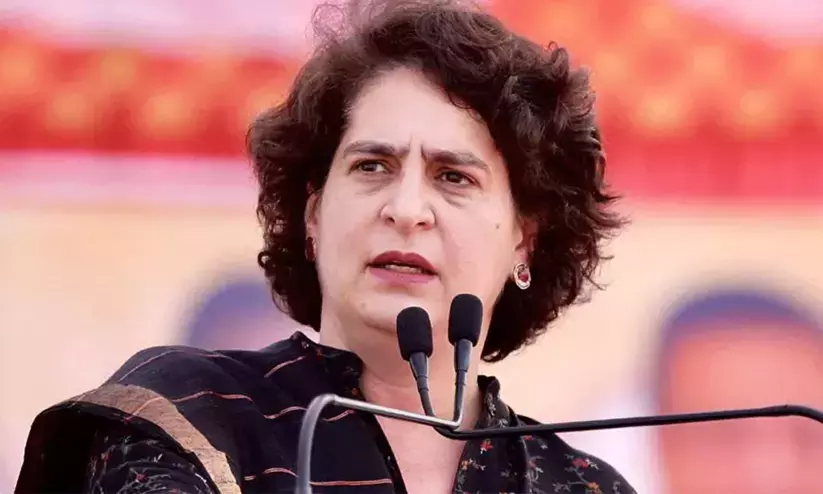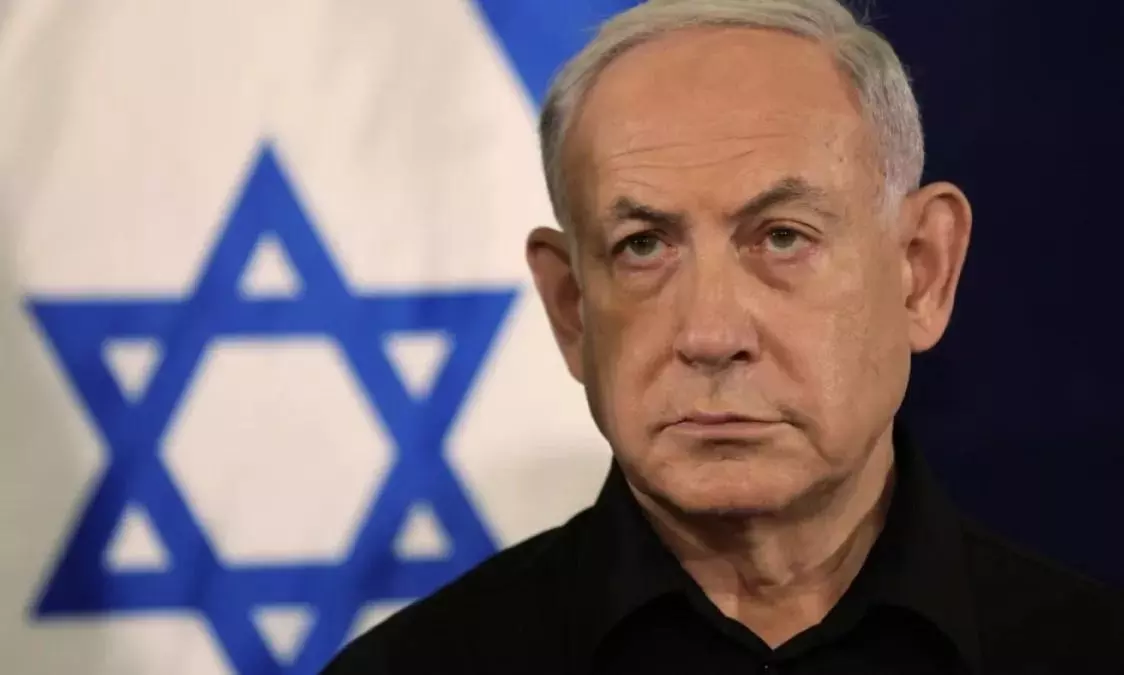
Netanyahu rejects truce deal with Hamas to prolong war in fear of ousting
text_fieldsThe belligerent Israeli Prime Minister Benjamin Netanyahu, who faces potential ouster once the war on Gaza ends, repeatedly pushed aside the idea of a permanent ceasefire with Hamas as ceasefire talks in Cairo progress and decided to go ahead with his plan to attack Rafah.
In a televised address, Israeli Prime Minister Benjamin Netanyahu reiterated Israel's refusal to agree to a permanent ceasefire with Hamas, arguing that Hamas's demands would further bolster its grip in Gaza, posing a continuing threat to Israel’s security.
On the ground, sentiments are against Netanyahu, as the public supports the agreement to bring back hostages held by Hamas. In Tel Aviv, a public gathering not only endorsed the deal but also called for an early election in the country following a ceasefire.
Israel's Defence Minister, Yoav Gallant, echoed Netanyahu's sentiments, placing the blame on Hamas and depicting it as the main obstacle to reaching a ceasefire deal. He exerted pressure on Hamas to acquiesce to Israel’s demands, warning that failure to do so would result in an immediate attack on Rafah, a reported Hamas stronghold in Gaza.
The statements by Netanyahu and Gallant have cast doubt on recent hopes for a breakthrough in negotiations between Israel and Hamas. Efforts to broker a temporary 40-day ceasefire and secure the release of hostages have faced significant obstacles, with Hamas maintaining entrenched positions that include the removal of Israeli forces from Gaza.
The potential military incursion into Rafah has raised concerns among international observers. US Secretary of State Antony Blinken emphasized the need for a credible plan to protect civilians in the city, warning against a major military operation that could result in unacceptable levels of damage and casualties.
Similarly, the Chief of the World Health Organization, Tedros Adhanom Ghebreyesus, cautioned that a full-scale military operation in Rafah could lead to a catastrophic bloodbath.
Negotiations between Israel and Hamas have been ongoing since late December, following a brief ceasefire that allowed for a prisoner exchange. Despite incremental progress in negotiations, significant differences remain, particularly regarding the withdrawal of Israeli forces from Gaza and the reestablishment of civilian control in the territory's devastated areas.
Critics in Israel have accused Netanyahu of prolonging the conflict to appease religious and ultra-nationalist factions within his coalition government. The pressure to secure the release of hostages has intensified, with families of captives appealing directly to Netanyahu to prioritize their loved ones' return.
Meanwhile, violence has escalated in the occupied West Bank, with Israel's military conducting operations targeting alleged Palestinians. Hamas confirmed that several individuals killed during a raid in Deir al-Ghusun village were members of its armed wing.
As tensions continue to escalate, the prospects for a lasting ceasefire and resolution to the conflict remain uncertain. The fate of the remaining hostages, the humanitarian situation in Gaza, and the broader implications for regional stability hang in the balance as Israel and Hamas navigate the complexities of negotiations and military posturing.




